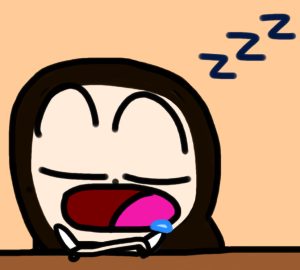The Voice of Privilege: The Effect That Code Switching Has on People of Color
October 26, 2021
As he stood in front of a room with no one like him-with his skin color and hair type showing no commonality with his audience, a sense of discomfort forced an unfamiliar voice. It was strange, but he eventually knew why he did it: acceptance.
Predominantly used by bilinguals and minorities, code switching is the adjustment of one’s speech, expression, behavior, or appearance, typically used for the comfortability of others, for equitable treatment or to avoid conforming to stereotypes. Code switching can also be widely displayed in the interactions one has with another. For instance, in their piece for the Harvard Business Review – “The Costs of Code-Switching” – Courtney L. McCluney, Kathrina Robotham, Serenity Lee, Richard Smith, and Myles Durkee express how they watched a video of former president Barack Obama greeting the U.S. men’s Olympic basketball team and noted that he greeted some of them differently. They state, “In the clip, viewers can see that there’s a clear difference between how Obama greets a white assistant coach and how he greets the black NBA player Kevin Durant. This moment inspired a sketch on Key & Peele in 2014 that played off the idea that Obama “switches” how he greets people, depending on whether they’re white or black.”
People should not feel it is necessary to alter their language in order to fit societal standards. Currently, they do in many instances that are deemed “professional settings,” including work environments and schools. In “Why It’s Hard for People of Colour to Be Themselves at Work”, Chika Ekemezie for BBC stated, “For people of colour, code-switching is a means of professional (and sometimes personal) survival.” In work environments, many people often code switch as a way to be viewed professionally, usually having to work ten times harder to avoid stereotypes when entering their place of employment.
Schools are also a common place that elicit code switching. With seventy-nine percent of teachers in America being white as of 2018, according to “Characteristics of Public School Teachers” for the National Center of Education Statistics, it is oftentimes difficult for students of color to connect with them. This is especially true in predominantly white institutions. The lack of diversity of teachers contributes to the code switching that appears in school environments. “The Costs of Code-Switching” emphasizes, “…research conducted in schools suggests that black students selectively code-switch between standard English in the classroom and African-American Vernacular English (AAVE) with their peers, which elevates their social standing with each intended audience.” Students manipulate their language according to whom they are speaking, and their use of AAVE is related to the comfortability they feel with friends and peers.
Code switching does not only appear in one’s speech, but can also be present in appearance. Discrimination against black hair is something that occurs in workplaces and schools frequently, hence the continuous lack of pride there is in black hair. In “Why It’s Hard for People of Colour to Be Themselves at Work”, by Chika Ekemezie, Renée Jarvis notes how she speaks to herself regarding her hair,“ ‘For some reason, when I get on a Zoom call, I’m like, OK, let me put on a wig… subconsciously, it’s for me to be like, ‘Let me be more presentable on this camera’.”
Although people should not have to change their speech or expression to appeal to white culture in the workplace or in schools, it is, nevertheless, important that there is a sense of professionalism in these areas. The line between a person’s language and unprofessionalism can be blurry. Still, it does not detract from the fact that there is a difference between the two. For example, there is a difference between use of vulgar language in a work environment, and the use of AAVE or a foreign language. If the language or actions used is not harmful or counterproductive, it should not be an issue no matter the location.
Code switching is ultimately just another way to try to fit into the norm for people of color. In a world that views a person of color’s language as ghetto, their hair unprofessional, and their skin color dangerous, it leaves no choice but to attempt to survive the systemically white society.












































